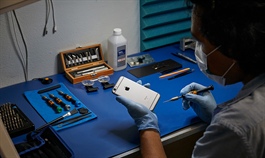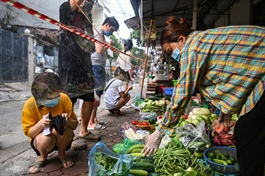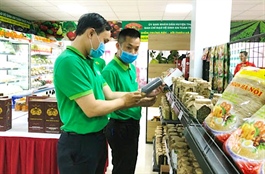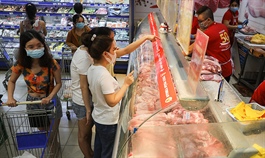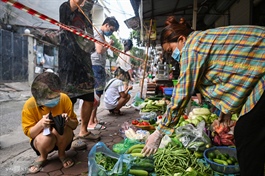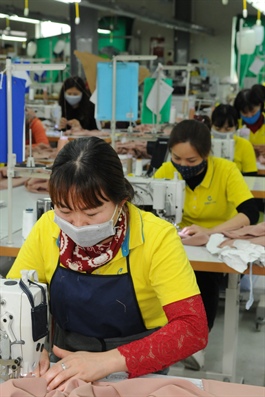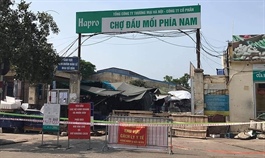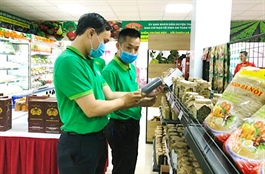Leather and footwear sector feels the pinch of increased costs
Leather and footwear sector feels the pinch of increased costs
Domestic leather and footwear enterprises have encountered numerous difficulties related to the growing costs, labor shortages and losses. They need practical assistance from relevant state authorities to maintain production and avoid being replaced in the supply chain.
High costs
In the first half of 2021, leather and footwear was one of the few industries to experience growth, with production increasing 11.4 percent and export earnings reaching US$10.4 billion, up 27.8 percent from the first half of 2020.
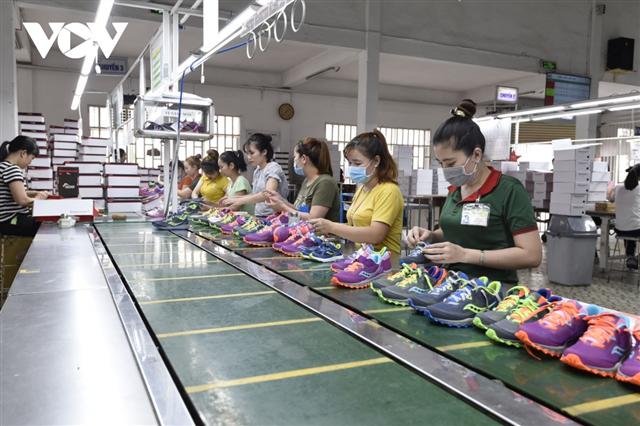
Ensuring safety for domestic production is one of the most important tasks for the final months of 2021
|
However, profits have been low to non-existent, a problem that Phan Thi Thanh Xuan, Secretary General of the Vietnam Leather, Footwear and Handbag Association (LEFASO), attributed to new and growing costs enterprises face. Due to the pandemic and its complex development, enterprises operated at only half their production capacity due to worker quarantine and extra costs related to pandemic control. An enterprise with 9,000 workers, for example, had to spend about US$1 million on Covid-19 testing tools during a two-month period.
The shortage of containers and the lack of space on shipping lines, as well as increased shipping prices, are also major challenges. Small enterprises with a limited amount of exports find it very hard to find a place on board vessels. In short, said Xuan, input costs have increased, while enterprises are forced to decrease production prices.
Ensuring domestic production safety
According to Xuan, most leather and footwear enterprises have received orders for production until the end of the fourth quarter, and must now ensure safe working conditions to provide them. Production and delivery are also important for Vietnamese leather and footwear enterprises to maintain their position in the supply chain.
According to the LEFASO representative, if the pandemic is not controlled, importers may shift orders from Vietnam to other countries. China has basically controlled the pandemic and is capable of supplying orders from other countries. Major brands all have production plants in different countries, and in adverse cases, they will likely shift orders very quickly from one country to another. “If the supply chain is broken in Vietnam, it will be very difficult to recover. Therefore, ensuring safety for domestic production has become the most important task to ensure export growth for the industry not only this year but also for many years to come,” Xuan said.
The government has issued an additional bailout package worth VND26 trillion to help employees and employers overcome hard hit by the pandemic. The LEFASO representative said policy makers need to help businesses benefit from the bailout and the government should avoid promulgating policies that cause difficulties and increase business costs.
For example, many industry associations, including LEFASO, have proposed that the government deal with a problem arising from a recent import tax decree (18/2021/ND-CP) that subjects on-spot imports to tax but only allows importers to get refunds after the goods have been exported. Previously, such imports were not subject to tax. This regulation discourages domestic production but enterprises reliant on imports for production have no other recourse. Some enterprises said they had to pay several billion dong a week in taxes, and it then took a long time to go through procedures for their refund.
Ho Chi Minh City intends to charge for use of infrastructure and public utility projects in seaport border crossing areas, imposing additional costs on business.
| The Ministry of Industry and Trade has forecast that footwear exports will continue to prosper. To ensure production safety, enterprises need to strictly implement pandemic control measures following the Ministry of Health’s guidance, including implementation of the 5K message - khau trang (face masks), khu khuan (disinfection), khoang cach (distancing), khong tu tap (no gatherings), and khai bao y te (health declarations). |








